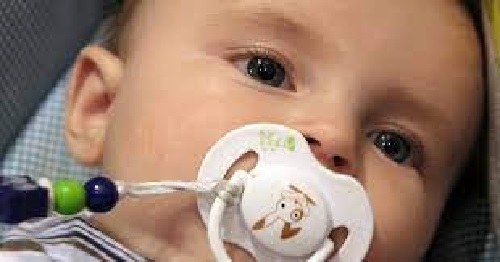
Dummies/pacifiers, speech & language development
Babies are so adorable and can bring so much joy to families.
They begin to express themselves right from birth and parents often understand the needs of babies from the way they behave.
Advertisement
Crying tells us they might be hungry, thirsty, frightened, sleepy or in need of a nappy change. Sometimes babies can become so irritable that there is the need for something to help comfort and settle them.
Dummies or pacifiers usually come in handy in such situations.
Although dummies/pacifiers are often helpful in the early months – in soothing them, its continuous use can affect their talking.
Some of the advantages of using dummies/pacifiers are:
• Some babies are naturally fussy and dummies/ pacifiers help in soothing them.
• Babies who have difficulty sleeping might find dummies/pacifiers helpful in settling down.
• Compared to sucking fingers or thumbs, dummies/pacifiers are better as they can be disposed of. Finger or thumb sucking can be difficult to stop.
• Dummies/pacifiers have come in handy in situations where babies need to be distracted from something, e.g. after a vaccination and baby is irritable.
Some of the disadvantages of using dummies/pacifiers are:
• Obsession with pacifiers/dummies can be a bit overwhelming for parents as a child might become restless without it.
• Dummies/pacifiers might increase a child’s risk of middle ear infections and this has the potential of affecting a child’s development of speech.
• Prolonged use of pacifiers/dummies might cause a child’s teeth to misalign.
How can dummies/pacifiers affect child’s talking?
Dummies/pacifiers can have an impact on the tongue movement needed for some speech sounds and the effect can be long term.
Also, using them continuously can limit the opportunities children have to babble and to practise sounds as they talk less.
In addition, this may impact their clarity of speech. According to dentists, sucking a dummy/pacifier a lot can create a gap between the top and bottom teeth of children.
This, in turn, can affect the production of some speech sounds.
Reducing use of dummies/pacifiers
• To reduce the use of a dummy/pacifier, a gradual approach must be used. It is advisable to reduce its use before the age of 12 months, as it’s easier to do so before they turn one.
• Avoid offering the dummy/pacifier immediately the child fusses or cries. Wait for them to indicate they want it or request for it if they can.
• Do not encourage talking with a dummy in their mouth.
• If possible, try to keep the use of dummies/pacifiers for only sleep times.
• In situations where your baby needs to use a dummy/pacifier, use it for few minutes to soothe your child.
• Offer rewards to your child for the times they do without the dummy/pacifiers. Stickers or blowing bubbles can be rewarding for them.
Helping children give up a dummy/pacifier goes a long way in helping them develop their talking skills.
Parents should see it as a positive achievement.
The writer is a Speech & Language Therapist/Clinical Tutor, University of Ghana. E-mail: [email protected]



